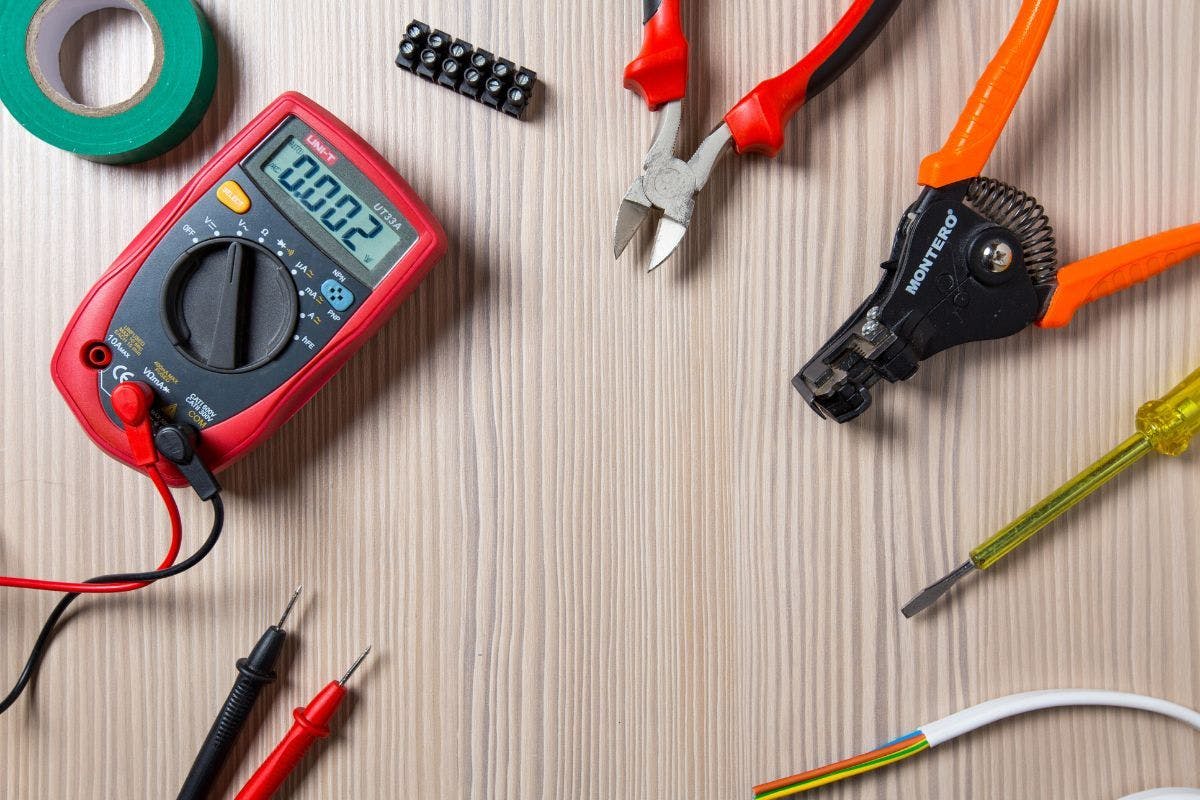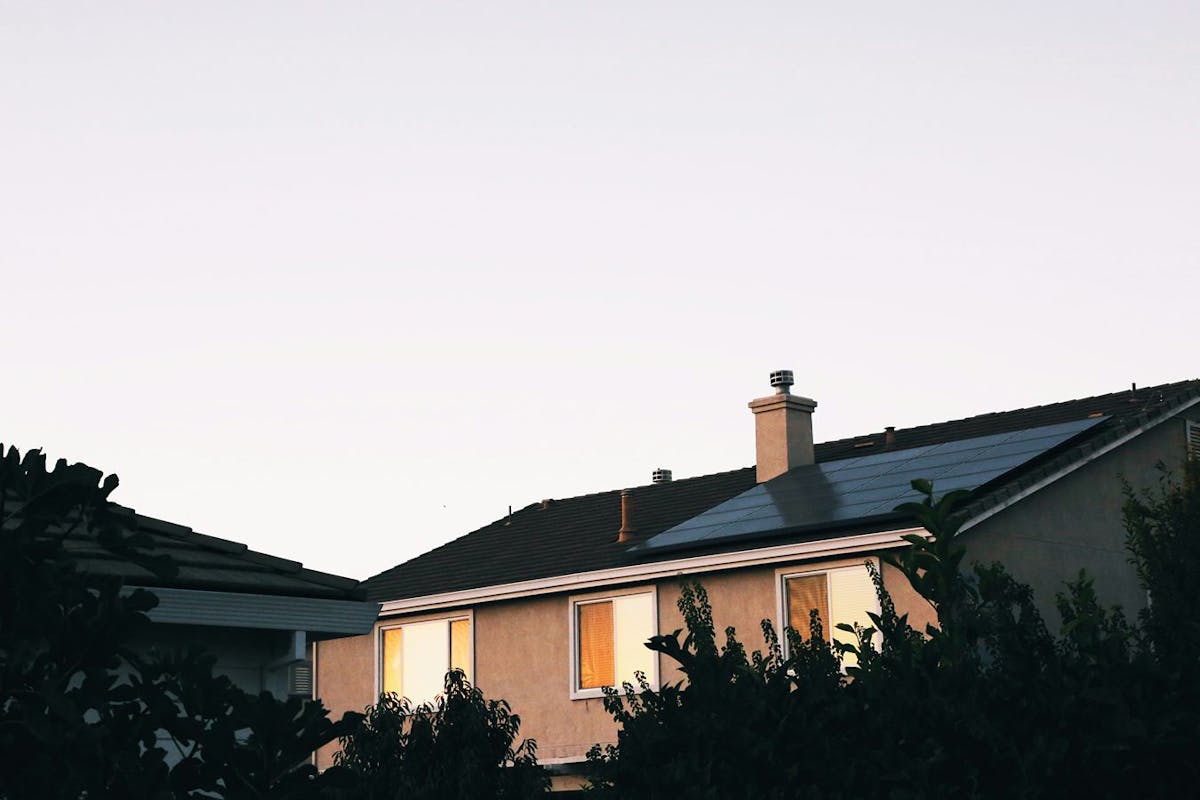DIY Solar Panels: Know the Pros and Cons Before You DIY It
Last edited
Author
Andrew Blok
Electrification and Solar Writer and Editor
Editor
Ryan Barnett
SVP, Policy & New Market Development

Switching to home solar power is an excellent step towards energy independence, but is installing the panels yourself a good idea? While the potential for savings and greater project control may be tempting, DIY solar panels come with some risks and drawbacks.
For a whole-home system, the challenges often outweigh the benefits. You face complex electrical work, securing necessary permits, and potential safety concerns. In many cases, it may not be legal. Before deciding on a DIY solar panel kit, it's crucial to understand both the positive and negative aspects to ensure a safe and effective solar installation which matches what you expect.
See how much you can save by going solar with Palmetto
What are the pros and cons of DIY solar panels?
In almost all cases, you should rely on licensed experts to install home solar panels on your property. If you’re in a unique situation where considering DIY solar panel kits makes sense, here are the pros and cons.
DIY PV solar panels pros
If you have a project that’s suited to doing it yourself, here are the potential advantages.
Savings: According to a 2021 study by the US Department of Energy's National Renewable Energy Laboratory, labor accounts for about 10% of the total price tag for installing solar panels. These potential savings depend on the solar system’s size and labor costs. It also assumes DIY installers do everything themselves and don’t have to hire any outside labor or need to call in professionals if things go wrong.
Greater control: If you have the knowledge and skill to install your ideal solar panel system, going it alone might give you greater control over your project.
Convenience: When you’re in control of your project, you can complete it on your own schedule and you won’t need to wait on an installer’s schedule.

Credit: JoseMalagonArenas; Pixabay
DIY PV solar panels cons
Besides the fact utilities may not let you connect your DIY solar panels to the grid, there are other potential downsides to installing panels yourself. Even if you're an experienced DIY’er, you can run into serious issues with installing your own solar panels.
Legal restrictions: Some jurisdictions prohibit the DIY solar system from connecting to the grid without professional certification because of the challenges listed below.
Required expertise: To pull off a solar panel installation you need to know how to do electrical work, get the proper permits and permissions, and avoid damaging your roof or other structures.
Advanced electrical work: The electrical expertise required for a solar panel installation goes beyond what most people have. Incorrect installation can result in electrocution or fire risks. Not only do you need to install the solar panels, but you need to take care of inverters, meters, electrical panel connections, batteries, and other technical components.
Permitting: From design and installation to permitting and final connection to the grid, going solar at home requires communicating with and navigating a few different bureaucracies. Professional solar installers have likely gone through those processes multiple times.
Needed labor: You’ll likely need a team of people to do the actual installation. This applies to basic work, such as lifting the panels onto the roof, and complicated tasks like connecting the solar arrays to your home’s electrical system.
Safety concerns: From climbing on the roof to doing electrical work, there are plenty of pitfalls for non-expert installers. An improperly installed solar installation can be a safety risk after the fact.
Roof damage: Rooftop installations require drilling into your roof. Drilling into the wrong place can lead to structural damage, while incorrect flashing and sealing can lead to roof leakage and mold issues.
Improper design: Choosing the wrong angle or orientation for your rooftop solar panels can impact their production. Solar panels are often designed and sized to meet your electricity consumption throughout the year. Over- or under-sizing your system can eat away at what you might save.
See how much you can save by going solar with Palmetto
Voided warranties: Improper installation could void manufacturers’ equipment warranties. While you can still reach out to your manufacturer directly, proving a warranty claim can be challenging.
Specialized equipment: Installing solar panels requires working with materials and equipment most people don’t have regular experience with or access to.
For grid-tied solar systems, you'll first need:
- Solar panels: To capture the sun’s rays and convert them into DC energy
- Mounting system: To mount and secure the solar panel arrays.
- Inverter: To convert DC energy from your panels into AC electricity for home use, and channel additional AC back to the utility grid
- Power or DC optimizer: To maximize the power from your PV panels
- DC disconnect: To shut off your system for maintenance
- Grid disconnect: To automatically switch off your system when a grid outage occurs.
- Combiner box: To organize all components
When it comes to off-grid DIY solar panel kits, you might also need some additional components:
- Charge controller: To channel DC energy from your panels to your storage battery backup, and then stop sending energy to avoid overcharging.
- Backup power battery bank: To power and supply your building when sunshine isn't enough.
- Balance of system (BoS): This includes all of the other equipment like a breaker box, wires, fuses, etc.
Don't forget the safety gear! To stay safe, it’s important to invest in the proper safety equipment when working on your roof.
Higher equipment costs: Unlike professional installers, you won't receive a discount for buying in bulk.
Poor equipment quality: If you don't have the experience to know the difference, you might choose lower quality equipment, which may have a shorter lifespan and lower efficiency.
Missing out on incentives: While many states and utilities provide rebates and incentives that significantly lower the cost of switching to solar, some of them are only available if a certified solar company installs your system.
Limited financing options: When buying your solar panels for a DIY project, you may have to buy the system outright instead of financing through a third party.
Can I install DIY solar panels myself?
A DIY home solar kit can serve your needs, especially if your required energy demands are minimal. These out-of-the-box systems are typically not as complex as multi-panel systems that power a large house and connect to the utility grid.
If you’re looking to install a whole-home system connected to the grid, the answer is probably not.
Unless your current day job and prior DIY experience include electrical work, engineering acumen, roofing, and government permitting, you should probably leave the heavy lifting to the solar professionals. This is especially true for larger homes with significant electricity needs that require an elaborate solar power plan.
A residential solar power installation is a significant investment that should serve you for more than 25 years. Setting up everything properly from the very beginning ensures your system functions at its maximum capacity and helps prevent headaches down the road.
Our recommendation is to rely on certified experts who install solar systems every day. Before you run out and buy your solar panels, let a solar professional investigate your energy needs and recommend the most suitable option for your home.
Overall, are potential DIY home solar savings really worth the risks and headaches? For most people, turning to professionals gives them peace of mind. While the upfront costs might be a little higher, the long-term benefits can be worth the expense.
To learn how solar might be a fit for your home, or see lots of other ways to save money by saving energy in your home, download and start your account on the new Palmetto app. You can also get started with our solar savings tool today.
See what solar can do for you:
Frequently asked questions
Can I make solar panels myself?
You can find DIY solar panel kits online that are great for assembling at home. In general, these are hobby items and won’t work as a whole home energy system.
Is it cheaper to build your own solar panel system?
You may save some money by installing your own solar panels, but the potential for a faulty installation, missing out on net metering, or other problems that can shrink your savings might not make it worth it.
Can I connect a DIY solar installation to the grid?
Many utilities won’t allow DIY solar installations to connect to the grid. Getting the necessary permits and eventual permission to operate is one clear area of expertise solar companies have over the average person.
Is it worth going off grid with solar panels?
Adding solar panels to a house that is already off grid can provide it with a cheap source of renewable energy. Disconnecting a home from the grid after adding solar panels can be a difficult and expensive process that won’t be worth it for most people. Removing your home from the grid means you’ll miss out on any net metering benefits available to you.


